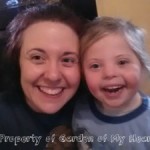A few months ago, I wrote a post about using People First language. Sometimes this is seen as being nit-picky or too politically correct. You’re entitled to your opinion, of course, as I am entitled to mine.
But here’s the thing – there’s a reason this stuff matters. It’s not about being politically correct, it’s about the kind of culture we perpetuate when it’s considered ok to see people only as a diagnosis.
In the news today, there was a story about a Texas high school yearbook in which students who receive special education services were singled out on their own page of the yearbook, referred to as “mentally retarded,” and had some of their diagnoses listed. The news article goes on to quote a student who thought it was “nice” to create a special page just for these students and a district spokeswoman who claims that the students didn’t know the word retarded is offensive. It’s all just a big mistake, according the the article.
I’ll say.
Here’s the thing – the beliefs we hold as a society about disability are so pervasive, so ingrained that this was able to go to print and be distributed before anyone caught on and complained. If there would have been a page that had pictures of students and a list along the lines of “cancer, diabetes, ADHD” …parents, students, and teachers would have gone nuts. You just don’t do that. But a student with a cognitive disability? A student who is blind? Yeah, that’s ok. Pat on the head – isn’t it nice that they were in the yearbook at all?
So pervasive are our attitudes about disability that the people in this scenario don’t even seem to understand the magnitude of the situation. The official statement from the district is that the students didn’t understand that “retarded” is a bad word choice, and that this was all just an “error.” How does a group of high school students in the Facebook and YouTube age not know that “retard” is the wrong word? And how does listing someone’s diagnosis in a yearbook get dismissed as an “oops” akin to a typo? And why is it assumed that “oops, our bad” is an acceptable apology?
At no point does anyone apologize for the real issue – you know, the listing of students’ disabilities alongside their pictures on their own segregated page of the yearbook. That’s the problem – that’s the deeply held, patronizing attitude we have in our country.
We think it’s ok to refer to a diagnosis and not the person. (Still trying to figure out why saying “Rowenna” is somehow harder than “Downs kid.”) We think it’s ok to approach people with disabilities and ask, point-blank, about their disabilities and limitations. (I don’t share my personal health issues with the cashier, why should the cashier have the right to hear about my daughter’s?) We think it is ok to segregate students who require additional supports in the classroom, and pat ourselves on the back when they are “allowed” to eat lunch in the cafeteria or attend art class. (Folks, that’s not inclusion.)
People First language is just one piece of the solution, one step toward bringing these pervasive attitudes to light and dealing with them in a real, meaningful, lasting way. But there is so much more to do.
Clearly.







3 Responses to Why It Matters